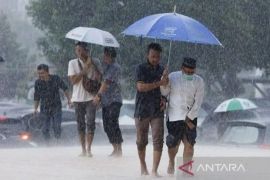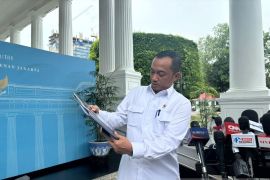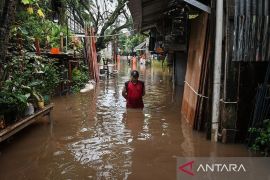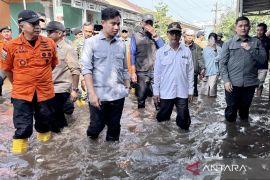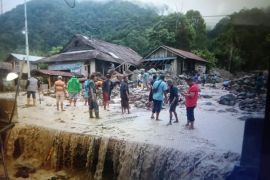"Climate change cannot be tackled by only one country, but all countries must contribute, especially to reduce greenhouse gas emissions immediately," Executive Secretary of UNESCAP Armida Alisjahbana noted in a special interview with ANTARA here on Tuesday.
She pointed to climate change as being one of the main issues. Such extreme weather changes were observed in various countries, such as droughts and fires in European countries as well as extreme rains that had caused flooding in Pakistan.
Alisjahbana remarked that climate change cannot be tackled by just one country, but instead, required the contribution of all countries, especially to reduce greenhouse gas emissions.
Hence, she highlighted the high interest on the part of UNESCAP in providing concrete recommendations for action to overcome the impacts of climate change, especially for countries in the Asia and Pacific region.
To overcome climate change, she stressed the need for mitigation and adaptation efforts.
Related news: Govt focusing on breakthroughs to tackle climate change: minister
Speaking in connection with mitigation efforts, the United Nations, in recent years, has pushed for no other new Steam Power Plants (PLTU) operations that use fossil fuels. They encourage reduction in the use of fossil fuel energy and instead encourage the use of new and renewable energy.
To reduce the impact of climate change, she said that UNESCAP encouraged countries in Asia and the Pacific to commit to expediting the reduction of greenhouse gases.
UNESCAP helps countries in the Asia Pacific to plan energy transitions, from using fossil fuels to new and renewable energy.
"Hence, we are helping these countries in making energy transition plans for the next 15 to 20 years, so that net zero emissions can be achieved by 2050," she explained.
For an archipelagic country like Indonesia, the UNESCAP also encourages increased absorption by stopping deforestation and planting trees, so that the number of trees planted is higher than the number of trees cut.
She also underscored the importance of conserving mangrove forests, so that these mangrove trees can absorb a lot of greenhouse gases.
Furthermore, Armida Alisjahbana highlighted the need for adaptation efforts by the community.
"Hence, we must also prepare the community to be ready, so that they do not clear the forest and also reduce waste," she remarked.
Related news: Indonesia raises greenhouse gas emission reduction target
Related news: Climate change posing a serious global threat: Minister
Reporter: Katriana
Editor: Suharto
Copyright © ANTARA 2022

